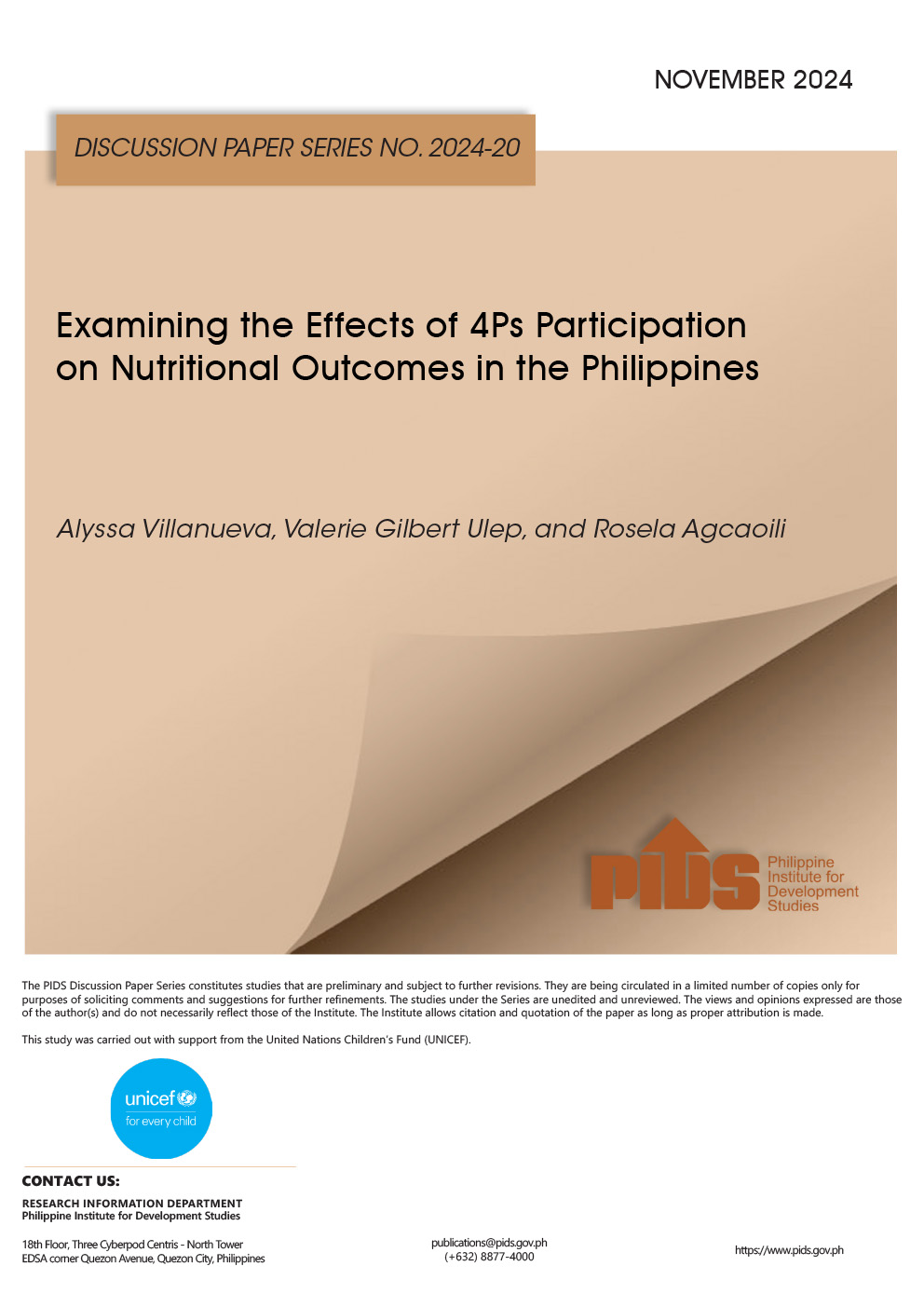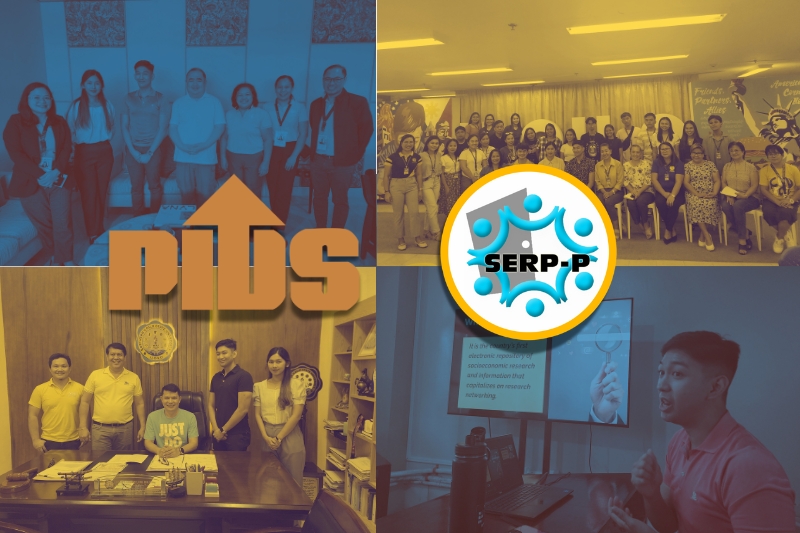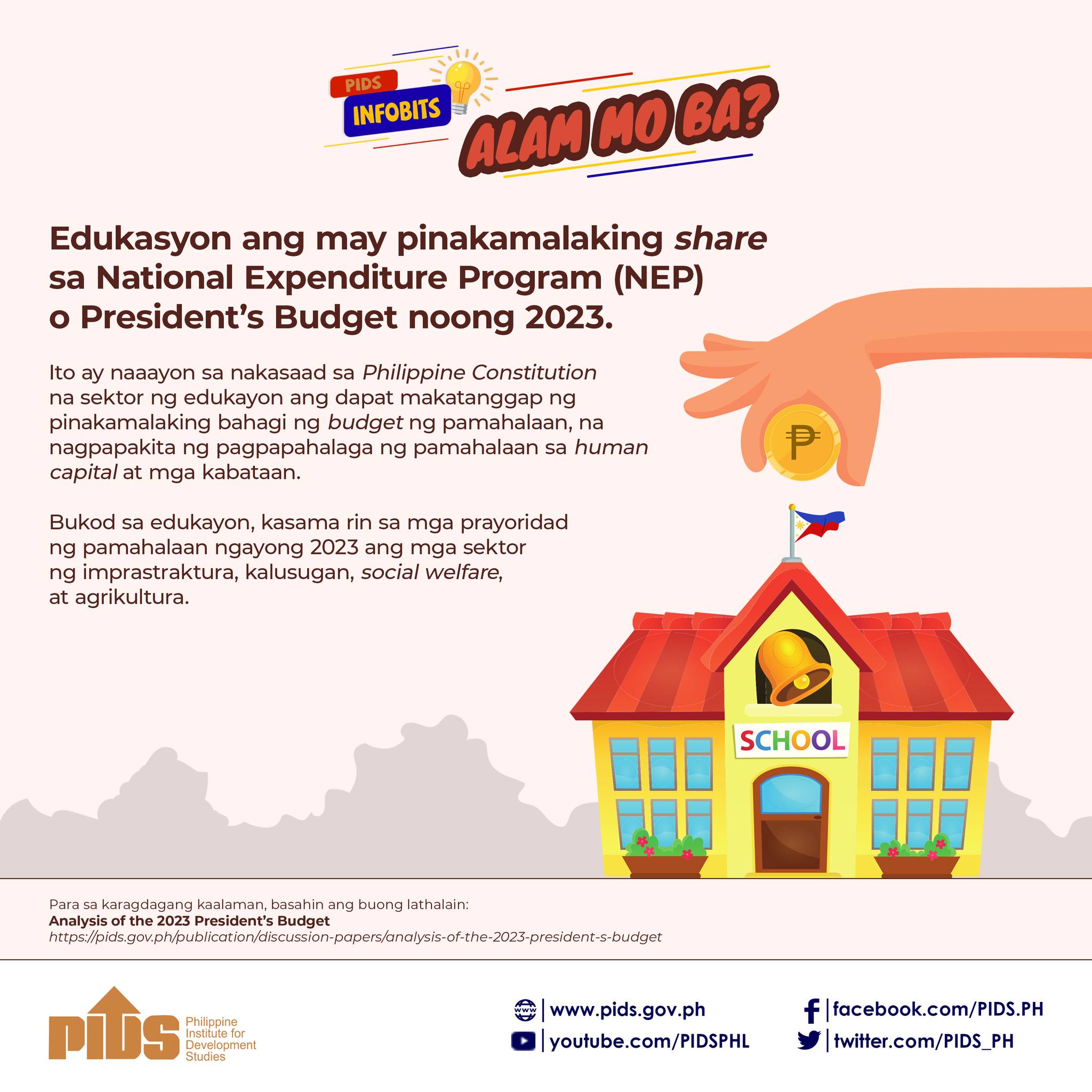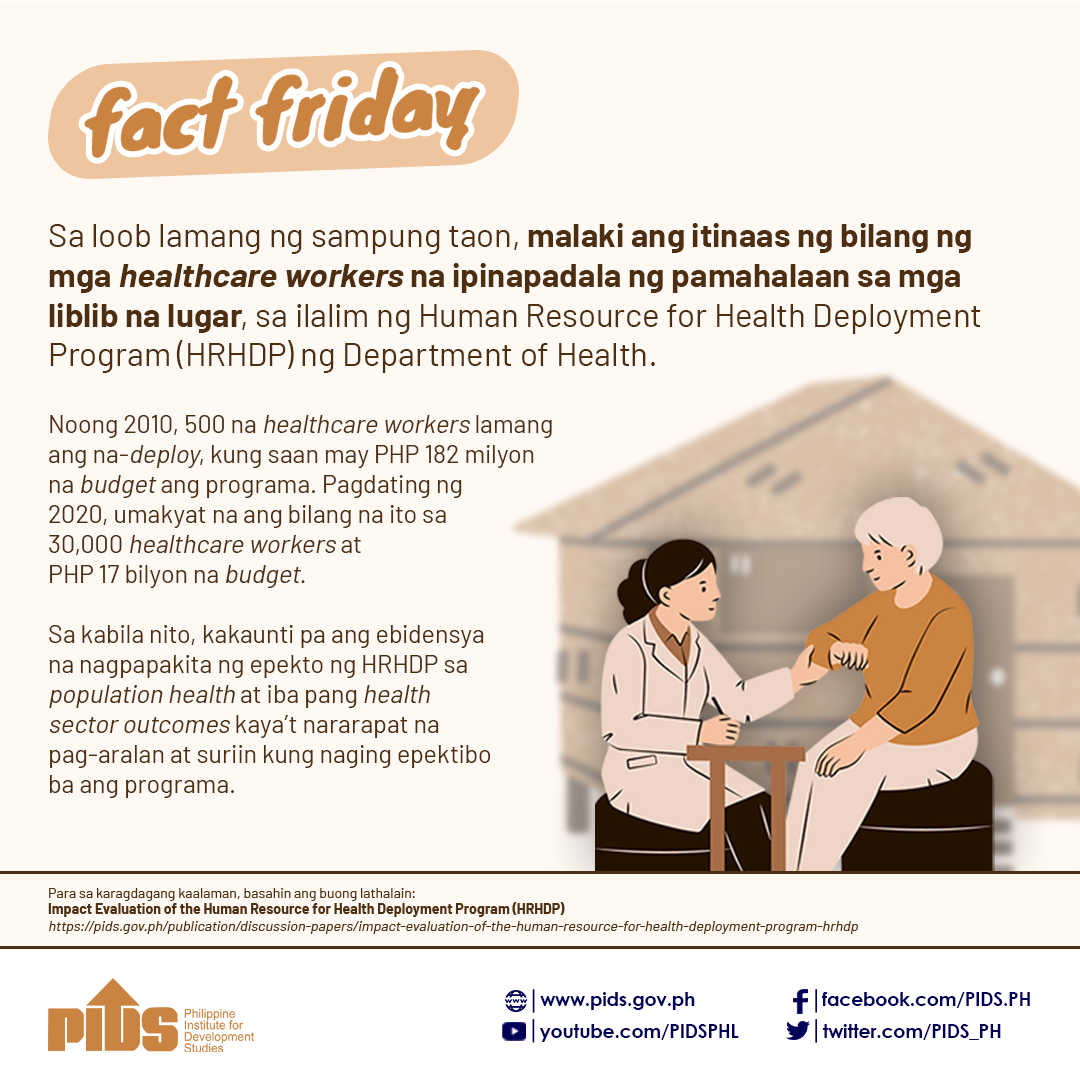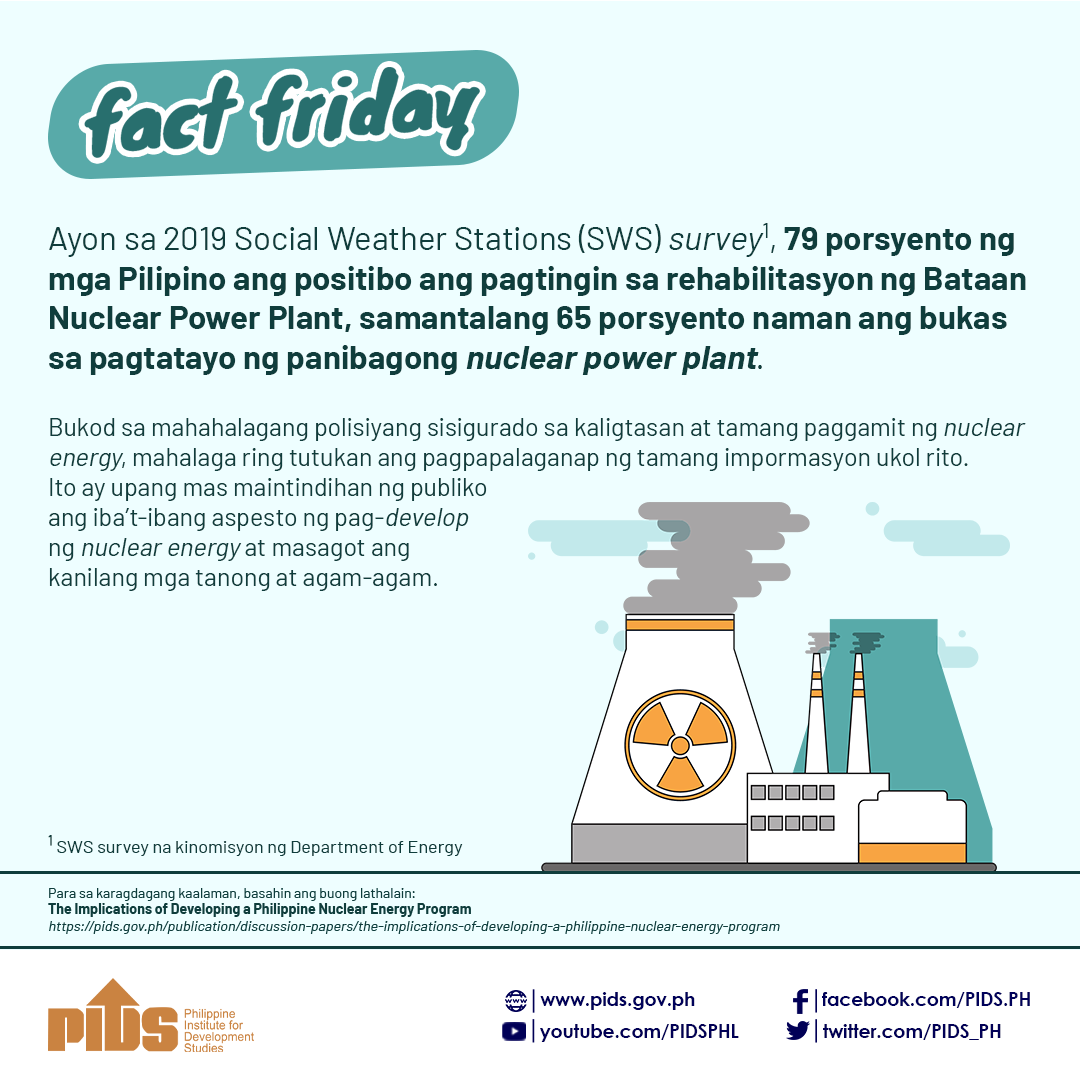Conclusion
FOR the Philippines to continue its pursuit of inclusive growth, economists are urging the next administration under President-elect Rodrigo R. Duterte to implement various reforms, as well as continue some programs to address poverty.
However, it is important that these programs and policies are well-targeted, according to Romulo A. Virola, former secretary-general of the National Statistical Coordination Board (now part of the Philippine Statistics Authority).
Virola said the next administration must implement poverty-alleviation programs that should help families who have incomes that are close to the poverty line.
Doing so will prevent these families from returning to life of poverty. Likewise, such move, according to Virola, would help enable these families to bounce back when experiencing income shocks, such as sickness or temporary and permanent disability.
One way is to teach them to become entrepreneurial by improving their access to capital or giving them decent pay that will allow them to absorb income shocks that may come their way, Virola said.
“Since inflation is low and unemployment is not so bad, the target should be to raise income; teach them to be entrepreneurial; and provide them with easy access to capital or pay them fair wages,” he said. “Maybe business is making too much money at the expense of our poor people—meaning that it is the rich who benefit more from our economic growth.”
Continuing reforms
PROGRAMS that can improve the poor’s access to capital and basic services can also improve their chances of getting jobs, according to Virola. This may even encourage them to become entrepreneurs who can earn their keep and provide employment to other Filipinos, he added.
Reforms, like improving lending facilities so that small and medium enterprises (SMEs) can access much-needed capital or funds to expand their business, should also continue, according to some experts.
Asian Institute of Management Policy Center Executive Director Ronald Mendoza said this is a key reform that will benefit SMEs, which account for 99 percent of total firms nationwide and employ 60 percent of the country’s labor force.
Mendoza and other economists are also hoping the Conditional Cash-Transfer (CCT) Program of the Arroyo and Aquino administrations would continue. They said doing so will improve the chances of the poor in accessing quality education and health facilities.
Mendoza said the CCT is one of three major reforms needed for greater inclusive growth. Continuing the CCT program should be complemented with human capital investments so that young people have a fighting chance to break from poverty, he explained.
The two other reforms Mendoza believes should be continued include improving lending and other support for SMEs, and foreign direct investment. The latter, he said, would “dramatically augment job creation and productivity.”
Islamic finance
ADORACION Navarro, senior research fellow of the Philippine Institute for Development Studies, said financing reforms can also take the form of mobilizing savings for investments.
This is particularly important for Muslims in the Philippines because Islamic finance is not that developed in the country. PSA data showed the poorest region nationwide is the Autonomous Region of Muslim Mindanao, which has an average poverty incidence rate of 55.8 percent in 2012.
Navarro said one reason Islamic banking is not developed in the country is that there is only one Islamic bank nationwide. More players are needed to cater to the country’s Muslim population, he added.
“If they are to strictly adhere to the tenets of Islamic banking, which prohibits riba or interest charging, they have fewer options because there is only one local Islamic bank—Al Amanah,” Navarro said. “Like in conventional banking, more players are needed in Islamic banking and Al Amanah needs other Islamic banks with which it can engage in financial intermediation transactions.”
He said that in the immediate term, the incoming Duterte administration can “conduct a value chain study of Islamic finance, see what constrains its development in each stage of the value chain and modify bank regulations to accommodate Islamic finance.”“In the medium to long term, additional Islamic banks and Islamic investment instruments must be created.”
Agri growth
APART from these, economists, including Ateneo Center for Economic Research and Development Director Leonardo A. Lanzona Jr., said there is a need to focus on agriculture development and reforms.
Lanzona said the agriculture sector does not only provide a source of livelihood for farmers and fishermen, but also the source of raw materials for the manufacturing sector. Lanzona said food manufacturing accounts for 36 percent of the country’s total manufacturing sector. It has an estimated total value-added of P555.093 billion to the total worth of the manufacturing sector.
Earlier, Eagle Watch senior fellow Alvin Ang said that, while agriculture only accounts for 10 percent of the country’s GDP, its share in employment is 30 percent.
The slow growth of the agriculture sector in the past 20 to 30 years has prevented the rise in incomes of farmers and their liberation from poverty, according to Ang, who also teaches economics at the Ateneo de Manila University.
“Actually, I would think that our biggest sector is really agriculture,” Lanzona said. “We’ve been talking about being competitive. You can never be competitive in the agricultural sector, there’s no way you can be competitive if you look closely at what we’re doing.”
To boost the chances of Filipino farmers and fishermen in benefiting from economic growth, Lanzona urged the next administration to examine the possibility of just taxing landowners and introduce subsidies, including those that pertain to farm technology.
He added that the next president can also focus on financing other crops aside from the country’s staple—rice and corn.
Lanzona said the country already missed out on opportunities presented by other commodities in terms of global and regional trade.
For his part, agricultural think tank Meganomics Specialist International Inc. President and CEO Pablito M. Villegas called for policy reforms in the sector. Instead of implementing commodity-approach policies, Villegas said the government needs to focus on the comparative and competitive advantages of each province or region.
“To me [the commodity approach policy] is terribly wrong. How do you promote, for example, fisheries in the inter land of Isabela? In the mountains of North Cotabato? You should go on more or less contortional approach, comparative advantage analysis. What are the comparative advantages of that area?” Villegas said.
Agriculture should also be developed in such a way that it helps generate employment, he added.
“It’s only by linking agriculture with manufacturing and processing that we can develop a green agro-based industrial clustering system.”
In terms of investment, Villegas said increasing the budget allocated for the sector and making sure these funds are used properly will help the government achieve true inclusive growth.
Citing the pronouncement made by President-elect Rodrigo R. Duterte in a meeting, he said the P1 billion incremental budget that may be given to each region specifically for agriculture would be “a good step.”
“Duterte is talking about another incremental budget of P1 billion per region for agriculture. So if you add about P18 billion on top of the current budget for agriculture, which is P90 billion, and provided that these amounts will be used properly and local government units are given the mandate, we will be able to do it,” he said.
More inclusive
IN the past weeks Duterte has bared an eight-point agenda to illustrate the socioeconomic priorities of his administration.
The agenda includes addressing the restrictive economic provisions in the Constitution, providing small farmers support services in pursuit of agricultural development and expanding the CCT program, among others.
If the next administration can implement its eight-point agenda, it may just be able to boost the country’s efforts to making economic growth truly more inclusive.//
FOR the Philippines to continue its pursuit of inclusive growth, economists are urging the next administration under President-elect Rodrigo R. Duterte to implement various reforms, as well as continue some programs to address poverty.
However, it is important that these programs and policies are well-targeted, according to Romulo A. Virola, former secretary-general of the National Statistical Coordination Board (now part of the Philippine Statistics Authority).
Virola said the next administration must implement poverty-alleviation programs that should help families who have incomes that are close to the poverty line.
Doing so will prevent these families from returning to life of poverty. Likewise, such move, according to Virola, would help enable these families to bounce back when experiencing income shocks, such as sickness or temporary and permanent disability.
One way is to teach them to become entrepreneurial by improving their access to capital or giving them decent pay that will allow them to absorb income shocks that may come their way, Virola said.
“Since inflation is low and unemployment is not so bad, the target should be to raise income; teach them to be entrepreneurial; and provide them with easy access to capital or pay them fair wages,” he said. “Maybe business is making too much money at the expense of our poor people—meaning that it is the rich who benefit more from our economic growth.”
Continuing reforms
PROGRAMS that can improve the poor’s access to capital and basic services can also improve their chances of getting jobs, according to Virola. This may even encourage them to become entrepreneurs who can earn their keep and provide employment to other Filipinos, he added.
Reforms, like improving lending facilities so that small and medium enterprises (SMEs) can access much-needed capital or funds to expand their business, should also continue, according to some experts.
Asian Institute of Management Policy Center Executive Director Ronald Mendoza said this is a key reform that will benefit SMEs, which account for 99 percent of total firms nationwide and employ 60 percent of the country’s labor force.
Mendoza and other economists are also hoping the Conditional Cash-Transfer (CCT) Program of the Arroyo and Aquino administrations would continue. They said doing so will improve the chances of the poor in accessing quality education and health facilities.
Mendoza said the CCT is one of three major reforms needed for greater inclusive growth. Continuing the CCT program should be complemented with human capital investments so that young people have a fighting chance to break from poverty, he explained.
The two other reforms Mendoza believes should be continued include improving lending and other support for SMEs, and foreign direct investment. The latter, he said, would “dramatically augment job creation and productivity.”
Islamic finance
ADORACION Navarro, senior research fellow of the Philippine Institute for Development Studies, said financing reforms can also take the form of mobilizing savings for investments.
This is particularly important for Muslims in the Philippines because Islamic finance is not that developed in the country. PSA data showed the poorest region nationwide is the Autonomous Region of Muslim Mindanao, which has an average poverty incidence rate of 55.8 percent in 2012.
Navarro said one reason Islamic banking is not developed in the country is that there is only one Islamic bank nationwide. More players are needed to cater to the country’s Muslim population, he added.
“If they are to strictly adhere to the tenets of Islamic banking, which prohibits riba or interest charging, they have fewer options because there is only one local Islamic bank—Al Amanah,” Navarro said. “Like in conventional banking, more players are needed in Islamic banking and Al Amanah needs other Islamic banks with which it can engage in financial intermediation transactions.”
He said that in the immediate term, the incoming Duterte administration can “conduct a value chain study of Islamic finance, see what constrains its development in each stage of the value chain and modify bank regulations to accommodate Islamic finance.”“In the medium to long term, additional Islamic banks and Islamic investment instruments must be created.”
Agri growth
APART from these, economists, including Ateneo Center for Economic Research and Development Director Leonardo A. Lanzona Jr., said there is a need to focus on agriculture development and reforms.
Lanzona said the agriculture sector does not only provide a source of livelihood for farmers and fishermen, but also the source of raw materials for the manufacturing sector. Lanzona said food manufacturing accounts for 36 percent of the country’s total manufacturing sector. It has an estimated total value-added of P555.093 billion to the total worth of the manufacturing sector.
Earlier, Eagle Watch senior fellow Alvin Ang said that, while agriculture only accounts for 10 percent of the country’s GDP, its share in employment is 30 percent.
The slow growth of the agriculture sector in the past 20 to 30 years has prevented the rise in incomes of farmers and their liberation from poverty, according to Ang, who also teaches economics at the Ateneo de Manila University.
“Actually, I would think that our biggest sector is really agriculture,” Lanzona said. “We’ve been talking about being competitive. You can never be competitive in the agricultural sector, there’s no way you can be competitive if you look closely at what we’re doing.”
To boost the chances of Filipino farmers and fishermen in benefiting from economic growth, Lanzona urged the next administration to examine the possibility of just taxing landowners and introduce subsidies, including those that pertain to farm technology.
He added that the next president can also focus on financing other crops aside from the country’s staple—rice and corn.
Lanzona said the country already missed out on opportunities presented by other commodities in terms of global and regional trade.
For his part, agricultural think tank Meganomics Specialist International Inc. President and CEO Pablito M. Villegas called for policy reforms in the sector. Instead of implementing commodity-approach policies, Villegas said the government needs to focus on the comparative and competitive advantages of each province or region.
“To me [the commodity approach policy] is terribly wrong. How do you promote, for example, fisheries in the inter land of Isabela? In the mountains of North Cotabato? You should go on more or less contortional approach, comparative advantage analysis. What are the comparative advantages of that area?” Villegas said.
Agriculture should also be developed in such a way that it helps generate employment, he added.
“It’s only by linking agriculture with manufacturing and processing that we can develop a green agro-based industrial clustering system.”
In terms of investment, Villegas said increasing the budget allocated for the sector and making sure these funds are used properly will help the government achieve true inclusive growth.
Citing the pronouncement made by President-elect Rodrigo R. Duterte in a meeting, he said the P1 billion incremental budget that may be given to each region specifically for agriculture would be “a good step.”
“Duterte is talking about another incremental budget of P1 billion per region for agriculture. So if you add about P18 billion on top of the current budget for agriculture, which is P90 billion, and provided that these amounts will be used properly and local government units are given the mandate, we will be able to do it,” he said.
More inclusive
IN the past weeks Duterte has bared an eight-point agenda to illustrate the socioeconomic priorities of his administration.
The agenda includes addressing the restrictive economic provisions in the Constitution, providing small farmers support services in pursuit of agricultural development and expanding the CCT program, among others.
If the next administration can implement its eight-point agenda, it may just be able to boost the country’s efforts to making economic growth truly more inclusive.//

